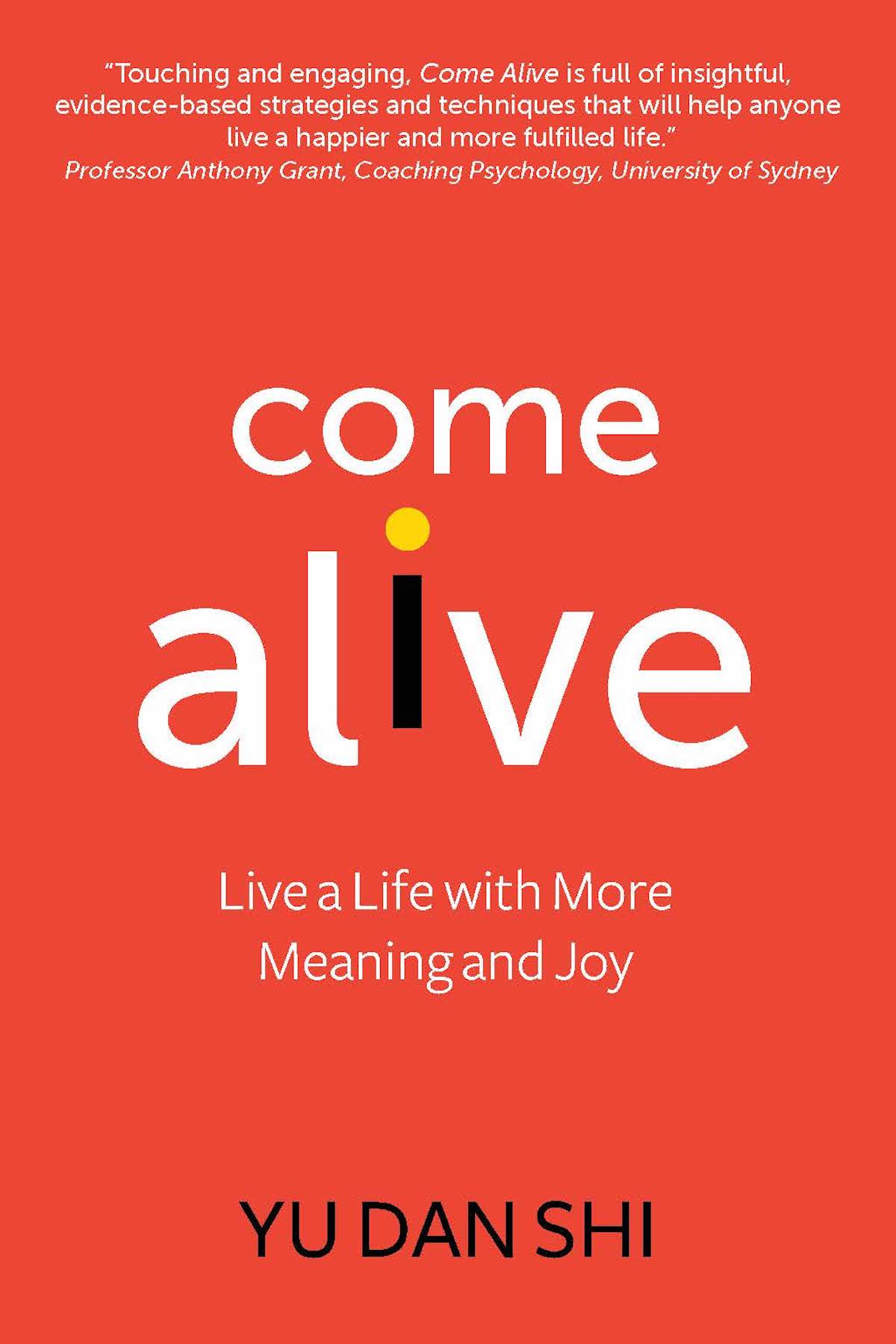Come Alive: How you can get the passion back in your career

Yu Dan Shi started high school at just eight years of age. Born and raised in China, she went on to graduate from university at 17. By 21, Yu Dan had moved to Sydney, Australia, and received an MBA. Ten years later, she was appointed CMO of Lenovo’s Australia and New Zealand division and began work at a Fortune 500 company, no less.
"On the surface I had everything," Yu writes in her book, Come Alive: Live a life with more meaning and joy. "As an executive of an innovative global tech company, I had a great job with a salary to match. I had ticked every life goal box; a family with two beautiful children, houses and lovely cars."
But at 32, Yu Dan was admitted to hospital. Her gall bladder had become so infected that it was on the brink of rupturing. It was a near-death experience brought on by stress. "It was the stress of looking successful on the outside and being completely miserable on the inside," Yu Dan explains. "I no longer had any passion for my job and had lost my drive and zest for life."
"It was the stress of looking successful on the outside and being completely miserable on the inside."
Yu Dan explains that losing your passion doesn’t just happen overnight. Instead, it is the "result of a short-term strategy that has become a long-term, destructive pattern". Working tirelessly at the expense of relationships, wellbeing and sleep, as well as prioritising other people’s goals over our own, are some of the factors that can wear us down.

In Come Alive, Yu Dan chronicles her journey from poverty to astronomical achievements before hitting rock bottom and having to find the joy she once had for her work life. Now as an executive coach and speaker, she shares a wealth of tips for attaining true success.
If you’re feeling unmotivated at work, these three takeaways from Come Alive can help you get your passion back.
Find daily motivation in your work life
While it is good to have big goals you want to achieve, constantly focusing on them can detract from the simple joys in your life. Yu Dan says we need daily energy and motivation to keep us going.
Instead of choosing external sources such as money, promotions and recognition, Yu Dan suggests finding your internal drive. She says it is a more natural way of feeling motivated and "gives us more joy and satisfaction".
Take the time to understand yourself, what you really want, what truly drives you and when you work at your best. "If we learn how to listen to our own motivation, we will learn how to choose the right path, the right projects," Yu Dan writes. "Every time we are faced with a decision, we will have a clear process of choosing what is right for us. We will be able to say yes and no easily. We will start to experience more of "we want to" instead of "we have to" moments.
Let your strengths shine at work
Purposely seek activities that are aligned to your strengths. Learn to discover what skills come easily to you and find creative ways to incorporate them into your role.
"By observing what comes to you naturally and what energises you, you will start to take control of how you work and how you live," Yu Dan writes. "You will bring your best and most natural strengths to everything you do, and the more you use them, the more effectively you will get things done."
Avoid becoming addicted to work
Hard work is often prized as a crucial step to success whether you’re an entrepreneur, business leader or athlete. However, this can be taken to the extreme. With more than 20 years of experience in the corporate world, Yu Dan says it is driven by a "culture of excessive work hours, especially amongst high achievers". She mentioned pulling all-nighters and turning up to work the next day; travelling across time zones and sitting through back-to-back meetings without a rest among the tasks she and other work colleagues would do. "Privately, we desperately wanted a break, yet we pushed on, proud of our toughness and discipline."
But working overtime is counterproductive. After working 48 hours a week, job performance rapidly decreases. It can lead to increased signs of depression and anxiety and in the long-term, health risks such as type 2 diabetes and cardiovascular disease. After Yu Dan’s health scare, she began limiting her working hours and implemented a ‘hard stop’ time for work.
"A limitation on your time drives you to devise ways to work more efficiently," Yu Dan writes. "You learn to focus wholly on the task at hand and not be distracted by emails or unrelated interruptions." She also advises taking small breaks during your work day and prioritising tasks according to your energy levels.
Yu Dan highlights that it will take time to adapt to these changes. The most important thing is make a start and be consistent. "If you can consider your change process as a yearlong experiment, you can afford to be playful and creative about it."